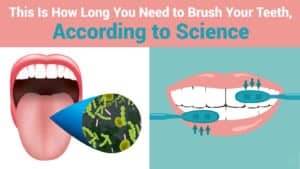Everyone feels a little down now and then. But when you feel inadequate, these emotions can quickly take over you, affecting your outlook and performance in everyday life. Then, this causes you to feel even more inadequate! It’s a vicious cycle.
Nobody wants to feel like they aren’t good enough, but these types of emotions are hard to shake. Luckily, if you know how to work around them, you can overcome that sort of negativity.
Here Are 15 Ways To Deal With Not Feeling Good Enough
1. Acknowledge The Feelings
Admitting something is always the first step to overcoming it. You can’t solve a problem that you don’t want to acknowledge is even happening, after all. Be honest with yourself. Consider how:
- These feelings are a frequent occurrence
- Your feelings are complex and complicated and need time to untangle
- They stem from certain things you may be ashamed of
- These feelings regularly sabotage or harm you
- You’re in a bad situation because of these feelings
When you acknowledge that you experience feelings of not being good enough, no matter how difficult it can be, you’re giving yourself the power to change it.
2. Don’t Aim For Perfection
If you aim for perfection, you already destined to fail. Nothing in life is perfect, no matter how much you want it to be. There will be mistakes, flaws, and setbacks in your journey, and that’s totally fine. Progress isn’t linear, after all. If your opinions on yourself are based on a lack of perfection, it’s a guarantee that you’ll feel inadequate. Everyone would be!
Plus, perfection can be pretty boring! A lot of the best things in life come from flaws and “imperfect” things. Don’t sweat a lack of perfection – embrace it. That’s where much of life’s beauty lies!
3. Try Meditation
Meditation is an excellent method of self-reflection, and it can help you process, understand, and overcome feelings of inadequacy. It can also help boost positive thinking and mental health. Here are some guidelines for good meditation:
- Start in a comfortable sitting position, with your shoulders back and your back straight
- Pay attention to your breathing and focus most of your awareness on inhaling and exhaling
- Allow thoughts to come into your mind naturally
- Do not follow those thoughts; observe them, like you are people-watching
- Do not judge, fight, or resist any of the thoughts that float into your head
- Take note of your body’s actions: tension, stiffness, relief, anything!
- If your mind wanders, return your focus to your breathing and your body
Let yourself become used to certain thought patterns; you now know what to work on changing
4. Choose Who You Spend Your Time With
Although the people you spend your time with can’t control you, they can slowly but surely affect the way you think. Being around negative people will morph you into a negative person. Being around cynical critics will eventually lead you to believe them.
Pick the people you spend your time with wisely. Surround yourself with positive people, and your life will become more positive, too. If you notice feelings of inadequacy cropping up after you spend time with certain people, reduce the time you spend with them.
5. Identify The Trigger
The Internet has turned the idea of a “trigger” into a joke, but in psychology, understanding triggers is an important part of processing emotions and dealing with certain feelings. A trigger for your feelings of inadequacy would be something that causes you to experience those emotions, pushing your buttons in all the wrong ways.
Common examples of triggers for thoughts of inadequacy are:
- Dismissive behavior from others
- Exposure to past bullies or abusers
- Being around people who are more successful
- Drawing comparisons to public figures and their success
- Emotional distress or anxiety over life events
- Depressive or anxious episodes
Once you identify your trigger, you can work to manage it. The next time you’re exposed to that trigger, you’ll be able to steel yourself in advance mentally. Thus, you can increase your confidence that you’re good enough.
6. Give Yourself A Break
No human being is designed never to take a break. You need this time to recharge. A lot of negative feels, including ones of inadequacy, can be a result of tiredness. Plus, you won’t be performing at your best if you’re exhausted. You can take a break by:
- Watching a movie or TV show
- Going out with friends
- Relaxing in a bath
- Getting a massage or spa experience
- Reading a book
- Playing video games
- Going for a walk
- Traveling somewhere new
7. Use Positive Affirmations
Positive affirmations work for one simple reason: the more you tell yourself something, the more likely you are to begin believing it. Use specific and inspiring affirmations in the present tense and say them to yourself every day in the mirror. Here are some examples of good positive affirmations:
- I am smart and capable.
- I excel in my craft.
- I’m a good artist.
- I overcome any negative thoughts.
- I’m stronger than negativity.
- I succeed in achieving my goals.
- I am worthy of success.
Soon, you will start believing you are good enough.
8. Don’t Base Your Self-Worth On Others
Contingent self-esteem is a state whereby your self-esteem is based heavily on feedback from those around you. This means that someone’s opinions of you will dictate how you feel about yourself.
This is a very easy state to fall into, but it’s fragile at best and is extremely unhealthy. Even if no one takes advantage of your lack of self-worth, you’re still creating an environment where one person’s words can bring you down severely.
Though listening to feedback is important, it’s also important to value your own opinion and to be confident enough in yourself that no one else can change your self-worth.
9. Talk To Someone
When all you hear is your own inner critic, you can get used to that negativity and begin to accept it all as a fact. So get some outside perspective. You can talk to:
- A family member
- A friend
- A therapist or counselor
- A colleague
- Anyone else you trust
These people definitely do not see you in the same negative way you see yourself!
Sometimes, it helps to talk to other people just for the sake of expressing your emotions and having a shoulder to cry on. Someone doesn’t have to give you an alternate perspective to help you feel loved and appreciated. And sometimes, when you’ve been feeling inadequate, knowing that you’re loved is all you need!
10. Add The Word “Yet” To Your Thoughts When You Don’t Feel Good Enough
Often, feelings of inadequacy can spring from a perceived slowness or lack of advancement in a certain area. You get down on yourself because you’re not particularly good at something. But instead of saying, “I’m no good at this,” say, “I’m no good at this yet.”
What this does is shift your perspective from a fixed mentality to one of growth. You are teaching yourself that you will always be moving forward and that you have the power to change unfavorable situations.
11. Nurture Your Inner Child
Think of how you were as a child. Would you talk to child-you the way you talk to yourself now? Would you let your inner critic run wild all over the kid you were at the age of two, or five, or ten?
Learn to speak to yourself with kindness, as though you are speaking to a younger version of yourself. Your goal is to nurture yourself and help yourself grow, the same way you would with a child in your care. Repeatedly calling yourself names and allowing negative thoughts to have complete control over you is not nurturing in the slightest!
12. Keep A Journal
Journaling is a great way to get a hold of your emotions, understand them, and learn from them. It’s got tons of positive benefits for your mental health and can lower symptoms of depression, but it can also help you deal with and overcome emotions of not feeling good enough. When you journal, you can:
- Express your emotions in a healthy way to a non-judgmental page
- Sleep on your feelings and read your journal to see if you still feel the same way
- Reflect on your journal entries to determine spots that need improvement
- Better process and understand your feelings
13. Don’t Constantly Expect Your Best
It’s good to give your best whenever you can. But expecting your best 24/7 is a surefire way to head for burnout. You’ll keep pushing yourself, even when you need to have an off-day.
With that being said, it is okay to expect your best if you consider your best to be changeable. For example, on a day where you are feeling incredible, your best would be the top of your abilities, but on a day where you’re feeling tired or sick, your best would be much lower than that. Essentially, your best can be the most you are able to do on that day!
 14. Be Honest With Yourself
14. Be Honest With Yourself
There are things in your life that you can change in order to promote emotional health better, and the only way to really reach those aspects of yourself is to admit they’re there. Ask yourself:
- Are things worse than I make myself think?
- Are my habits worse for me than I let on?
- Finally, are there things in my life that I’m clinging to?
It can be difficult to confront yourself and truly be honest with who you are, but learning to do so will help you forge better relationships with yourself and others in the long run.
15. Care For Your Body
Many times, a lack of energy can make it difficult for you to manage emotions. Tiredness, mixed with an unhealthy body, can decrease positive thinking significantly, making it more difficult to feel good enough.
Consider caring for your body in the following ways:
- Eat healthily
- Get at least 30 minutes of exercise daily
- Try some yoga
- Take breaks when you need them
- Cut down on certain unhealthy foods
- See a doctor when you are sick or have health concerns
- Make sure you’re getting enough sleep
- Take it easy on injuries or wounds
Final Thoughts On Ways To Deal With Not Feeling Good Enough
You aren’t inadequate. You have never been, and you never will be. Now, you just have to convince yourself of that! Learning to deal with these types of negative emotions can help you live a happier life, and you can do so much better without these thoughts weighing you down.












